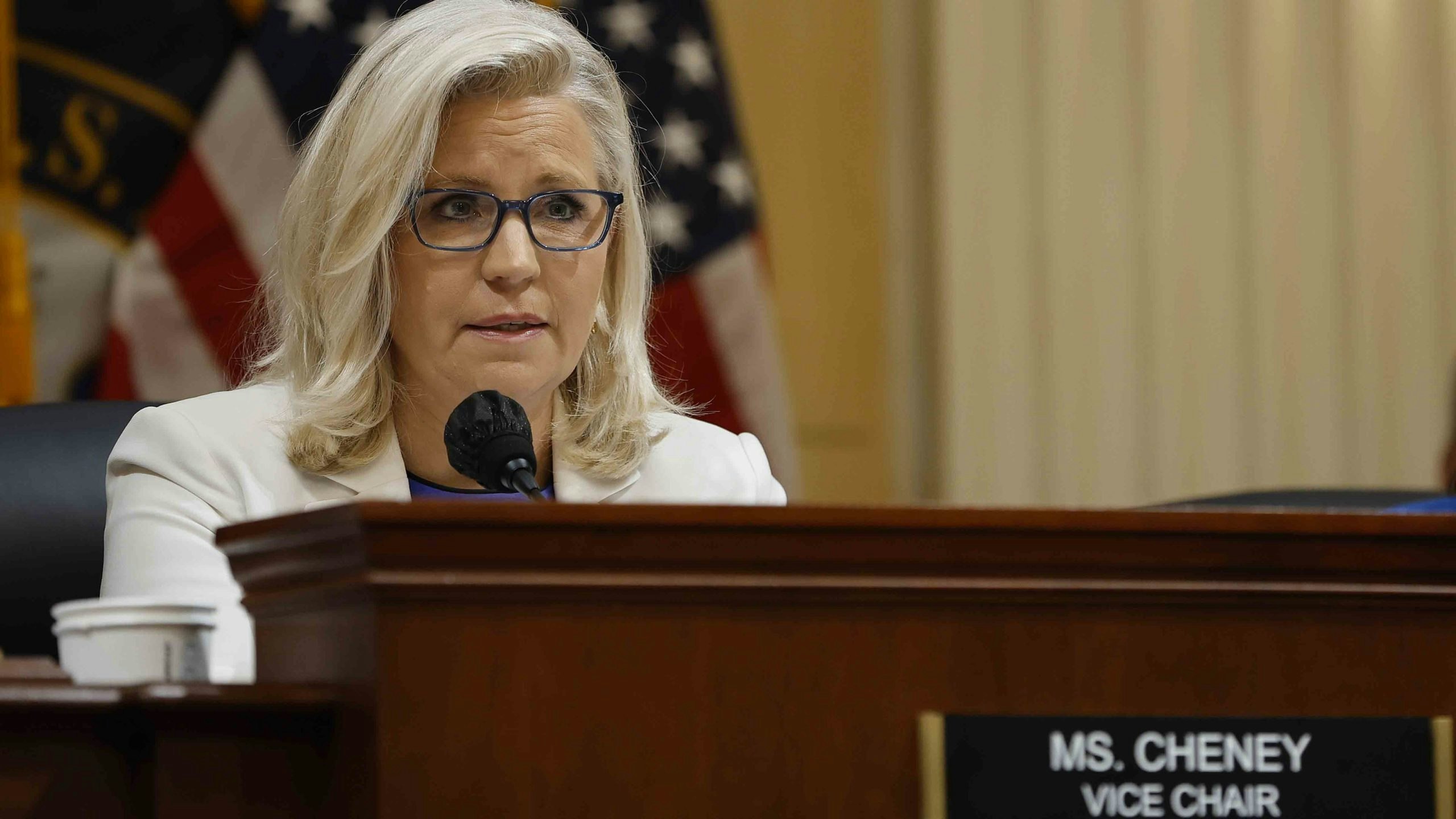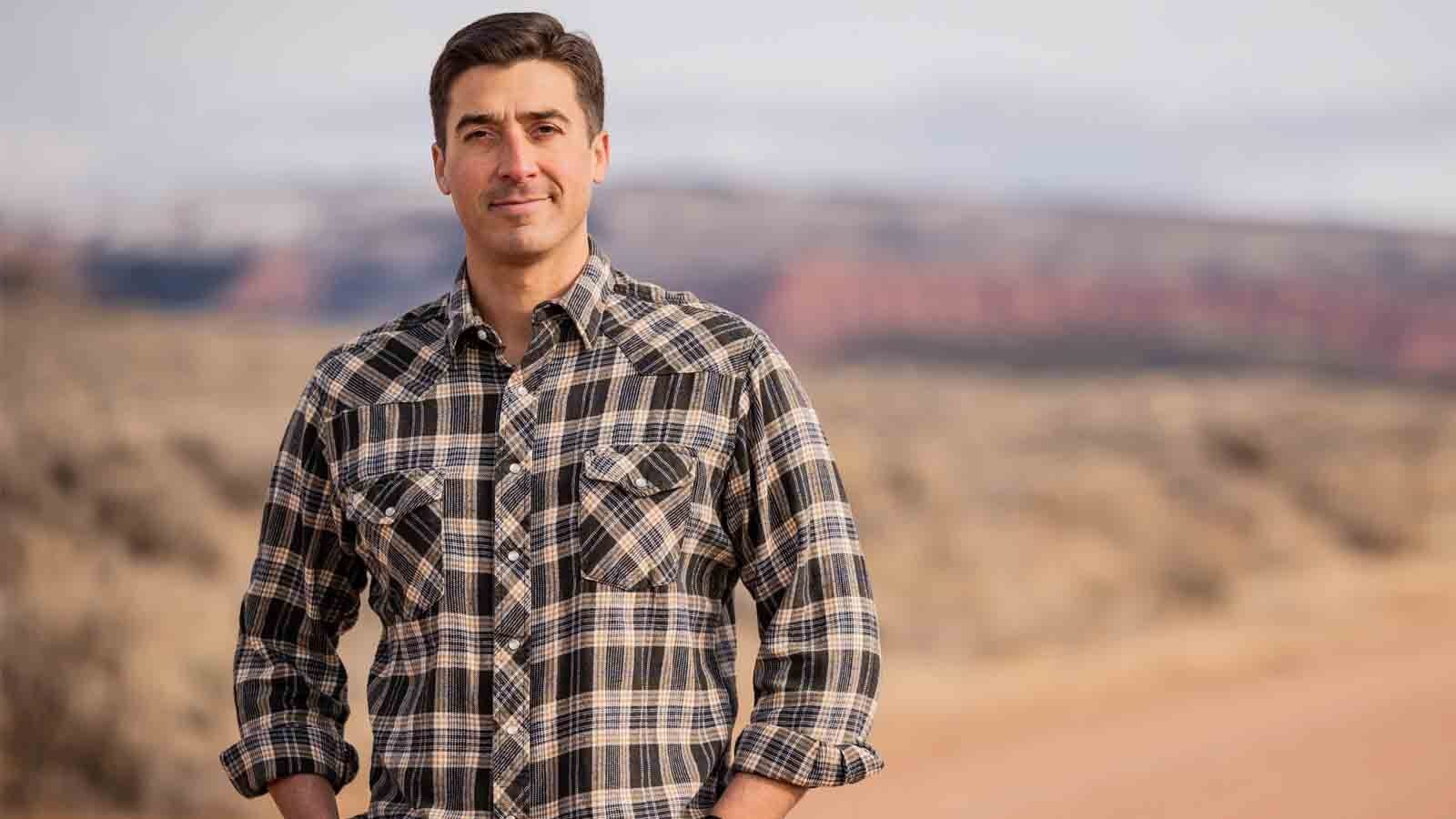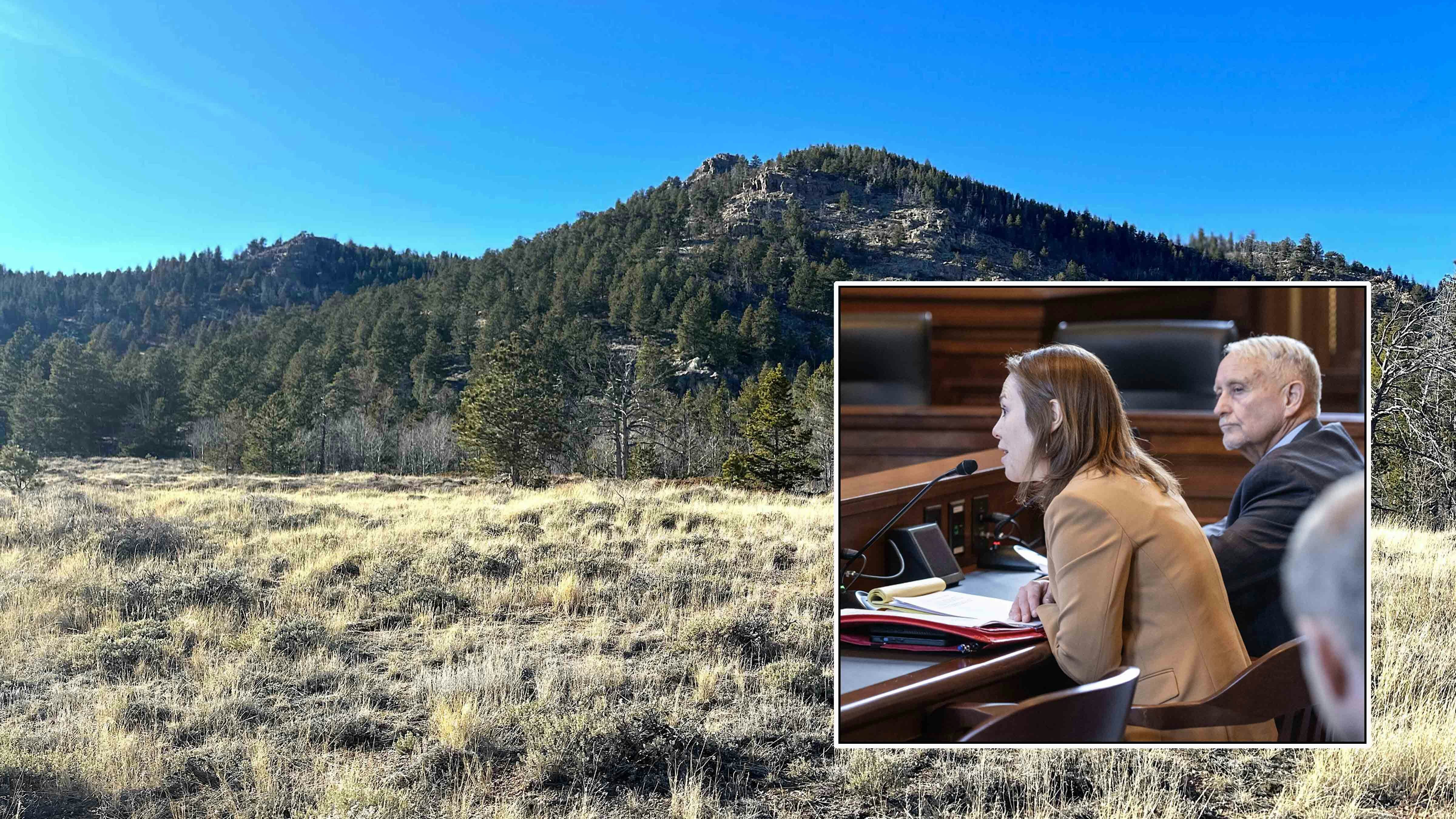U.S. Rep. Liz Cheney sat front and center during the last Jan. 6 Committee hearing of the summer on Thursday night, the highest profile she has carried since the hearings began.
Due to Committee Chair Rep. Bennie Thompson, D-Miss. testing positive for COVID-19, it was Cheney’s responsibility to preside over the ninth hearing on primetime television as the vice chair.
“We on this Committee know we have a solemn obligation not to idly squander what so many Americans have fought and died for,” Cheney said in her closing statements. “(former President) Ronald Reagan’s great ally, Margaret Thatcher, said this: “Let it never be said that the dedication of those who love freedom is less than the determination of those who would destroy it.”
Although it was announced there will be another committee hearing held in September, the ninth hearing carried a tone of completion to the exhaustive set of panels covering the events leading up to and playing out during the Jan. 6 Capitol riot and former President Donald Trump’s alleged role in inciting the event.
“Everything you have heard in these hearings thus far will help you understand President Trump’s motives during the violence,” Cheney said. “You already know Donald Trump’s goal – to halt or delay Congress’ official proceedings to count certified electoral votes.”
Hageman Advisor Speaks
Taped testimony from Tim Murtaugh, a former Trump campaign manager and current advisor for Harriet Hageman, Cheney’s U.S. House opponent, was played before the committee.
“I don’t think it’s a patriotic act to attack the U.S. Capitol,” Murtaugh said, calling the event “criminal.”
Hageman has been ambiguous about her stance on what happened on Jan. 6, saying it’s unclear what happened that day. During a June debate she briefly addressed the issue saying, “The only time that the J-6 situation ever comes up is when people talk about how unfair this entire (House committee investigating the riot) is.”
Text messages from Murtaugh were also shown on Thursday night where he expressed disappointment on Jan. 9, 2021 that Trump did not acknowledge the death of a Capitol police officer after Jan. 6. Murtaugh said Trump couldn’t acknowledge the death because doing so would be self-incriminating and therefore, since the riot participants were Trump’s people, doing so would be “acknowledging that what he lit at the rally got out of control.”
Dam Breaks
During her opening remarks Cheney said the “dam” has begun to break, referencing those who have remained loyal to Trump.
“He refused to defend our nation and our Constitution,” Cheney said. “He refused to do what every American President must. In the days after January 6th, almost no one of any political party would defend President Trump’s conduct. And no one should do so today.”
Multiple clips were shown of Cheney asking former members of Trump’s staff whether it was the president’s responsibility to uphold the law, which all confirmed it was.
The eighth hearing mostly focused on what Trump was doing while the riot commenced.
On the afternoon of Jan. 6, 2021, Cheney said Trump would not get on the phone to order the military to help or fulfill what his oath of office required.
Within 15 minutes of giving his speech on the Ellipse and returning to the Oval Office, witnesses said Trump was informed that a riot was occurring at the Capitol. Trump remained in a dining room watching Fox News as the insurrection continued to play out over the course of the afternoon.
A video of Cheney questioning former White House Counsel Pat Cipollone was also played, where Cipollone said he was unaware of Trump making any calls to military leaders on Jan. 6. Witnesses said former Vice President Mike Pence made multiple calls to these individuals.
Instead, Trump was busy tweeting and calling senators, asking them to delay their certification of the election, according to former Press Secretary Kayleigh McEnany. In one of these tweets, Trump berated Pence as mayhem was already commencing on the steps of the Capitol.
“Only one thing was succeeding on the afternoon of January 6th,” Cheney said. “Only one thing was achieving President Trump’s goal. The angry armed mob President Trump sent to the Capitol broke through security, invaded the Capitol, and forced the vote counting to stop.”
Cippalone also told Cheney he and others implored Trump to make a public statement quickly.
It took Trump more than three hours to tell people to go home in a taped video from the Rose Garden. By the time he finally did this and told the rioters they were “very special” and he “loved them,” two pipe bombs had already been found, the electoral count had been delayed, guns were drawn on the House floor and a rioter had been shot.
“The mob was achieving President Trump’s purpose so of course he chose not to intervene,” Rep. Adam Kinzinger, R-Ill. said.
Conclusions
Cheney paid tribute to the women and other witnesses who spoke before the committee. She mentioned how in 1918, the Committee on Women’s Suffrage convened in the same room that the hearing was taking place to discuss and debate whether women should be granted the right to vote.
The Jan. 6 Committee only had two Republican members, a point many conservatives pointed to as proof of the panel being assembled as a partisan attack on the former president. Cheney responded to this critique.
“Do you really think Bill Barr is such a delicate flower that he would wilt under cross examination? Pat Cipillone? Eric Herschman? Jeff Rosen? Richard Donoghue? Of course they aren’t – none of our witnesses are,” she said.
Cheney mentioned Trump’s comment during the 2016 campaign, in which he said he could murder someone and not lose any voters, and a comment made by his former advisor Steve Bannon that Trump would claim to win the election whether actually did or not.
“Donald Trump was confident he could persuade his supporters to believe whatever he said, no matter how outlandish, and ultimately that they could be summoned to Washington to help him remain President for another term,” Cheney said.
Prior to Jan. 6, Cheney said she circled a memo to her House colleagues showing how Congressional proceedings to count electoral votes could not be used to change the outcome of the election. Testimony provided to the panel over the past six weeks showed that many members of Trump’s staff were telling him the same thing.
“Donald Trump wasn’t looking for the right answer legally, or the right answer factually. He was looking for a way to remain in office,” Cheney said.
Cheney brought the night to conclusion with the committee’s closing statement, asking whether Trump could ever be fit to be president again considering the Constitutional choices and actions he made on Jan. 6. This question may be a reference to the many polls showing Trump holding on to a comfortable lead in theoretical 2024 Republican primary elections and rematch races against Biden.
“Let me assure every one of you this, our committee understands the gravity of this moment, the consequences for our nation. We have much work yet to do, and will see you all in September,” Cheney said, striking the meeting closed with a swipe of her small gavel.





